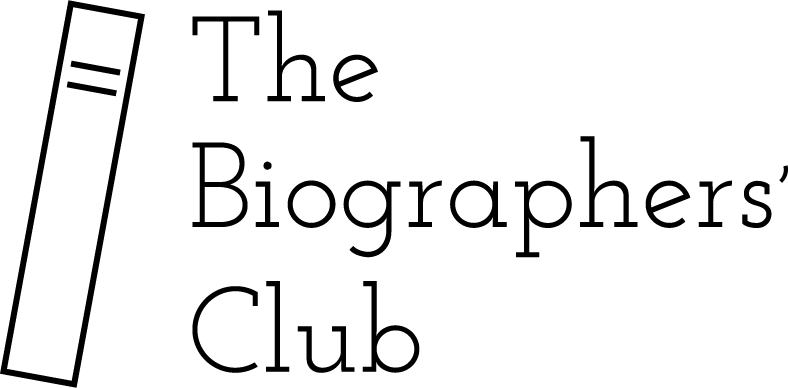Andrew Lownie, the Biographers’ Club’s founder and president, is persisting in his quest to gain access to the Broadlands archive, containing the diaries and correspondence of Lord and Lady Mountbatten, the subjects of his bestselling The Mountbattens: Their Lives and Loves.

| He writes: I have been fighting for 4 years to secure access to the diaries and correspondence of Lord and Lady Mountbatten, from 1918-1979. It is too late for my own book, but I am carrying on the fight so the diaries and correspondence, bought with public money, are available for everyone. Already I have spent £250,000 of my own money, most of my savings. It will take £100,000 to fund the case to a final hearing, of which I am fund raising for half. Lord Mountbatten (“Dickie”) was the uncle of Prince Philip, Duke of Edinburgh, confidante of Edward VIII (Duke of Windsor), the last Viceroy of India (overseeing independence and partition of India and Pakistan), First Sea Lord (at the time of the Suez crisis) and Chief of Defence Staff. Edwina, Lady Mountbatten was a wealthy socialite, who became a tireless relief worker, and had a close relationship with the Indian leader Nehru. Together, their writings can be expected to shed light on many of the most important episodes of 20th century history, including on the Royal Family and the independence of India, Pakistan (and Bangladesh). It is estimated the diaries could be a more important historical source than the Chips Channon Diaries. Using almost £4.5 million of public money, Southampton University purchased the entire Broadlands archive (including the Mountbattens’ diaries and letters) from a Mountbatten family trust The purchase was enabled with the help of grants, including almost £2 million from the National Heritage Memorial Fund[ and £100,000 from Hampshire County Council, and partly through the Acceptance in Lieu tax scheme with the approval of HMRC. Arts Council England says the Acceptance in Lieu scheme allows important historic archives to be given “to the nation” as a way of settling tax bills, and that “material accepted under the scheme is allocated to public museums, archives or libraries by the appropriate minister and is available for all.” In its applications for funding the purchase, the University stated that the entire Mountbatten archive would be accessible by the public at Southampton but it is not. I made a request for the diaries and correspondence under the Freedom of Information Act 2000 in May 2017. The University refused to release them, citing a Cabinet Office’s power of veto under a Ministerial Direction, and after futile internal reviews I complained to the Information Commissioner’s Office (ICO), in August 2018. In December 2019, the ICO ordered the University to release all the diaries and letters. This decision was significantly delayed because the University failed to respond to the ICO’s investigation for over a year. Indeed, it only did so after the ICO was forced to take what it described as the “unprecedented” step of bringing contempt of court proceedings in the High Court to compel the University to respond . The ICO branded the University’s delay as “completely unacceptable” and in court filings complained about its “persistent, wholescale and unexplained failure to comply with the information notice . or otherwise to assist the Commissioner with her reasonable enquiries. In effect, the [University] continues to flout its statutory duty under the Freedom of Information Act 2000”. The University appealed to the First Tier Tribunal, with the support of the Cabinet Office. Together they have an army of lawyers, including two QCs. After much pressure the University said that the diaries to 1934 would be released in early April 2021. They were not. Over four years I have done my best on my own working with expert lawyers in the field but I now need help to fight the case to a conclusion – the full Tribunal hearing has been repeatedly adjourned at the request of the University and Cabinet Office, and is now due to take place on 15-19 November 2021. The University and Cabinet Office keep changing their case, and I will now need to file statements to overcome numerous further FOIA exemptions from disclosure being cited by the University and Cabinet Office, prepare final legal arguments, and fund my advocate for a 5-day hearing. There are important issues at stake in this David versus Goliath case. . The historical importance of the archive itself , not least relating to Indian Independence and how far the Mountbattens were impartial. . Questions of academic freedom and whether the state can censor private diaries and letters. . Specifically: (i) What is the genesis of the Ministerial Direction which “closed” the diaries and letters shrouded in secrecy? Despite after four years of probing, neither the Cabinet Office nor the University has disclosed even the name of the person who signed it; (ii) Why are Government and University spending large sums of money (with two QCs) on a legal case to prevent access to private diaries and letters bought with public monies and where the fund raising emphasised that the archive would open to all? (iii) Why have the early diaries not been released as promised to the judge by the University at the last hearing? |
